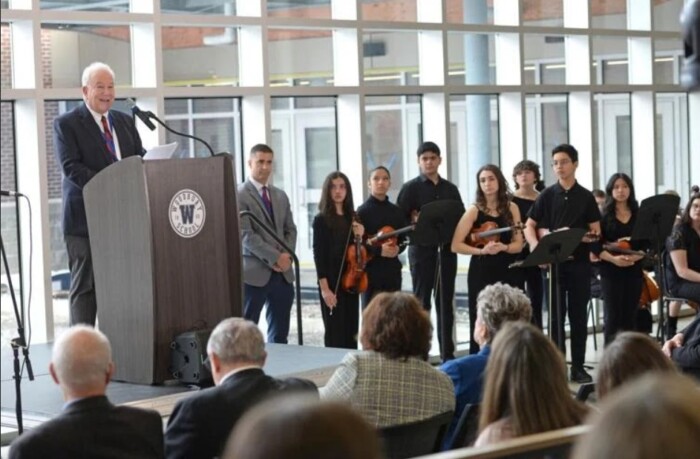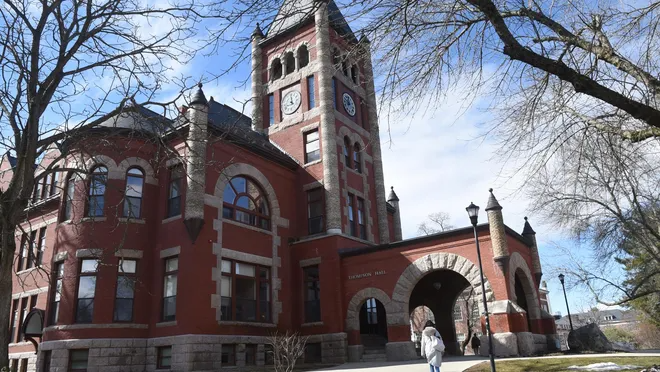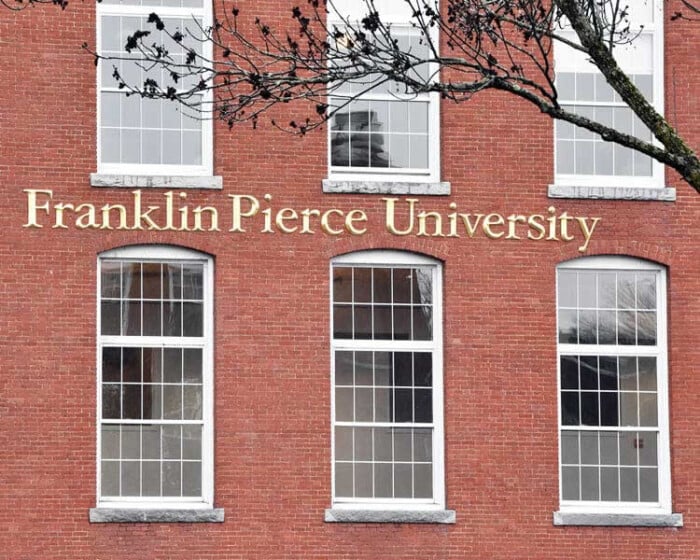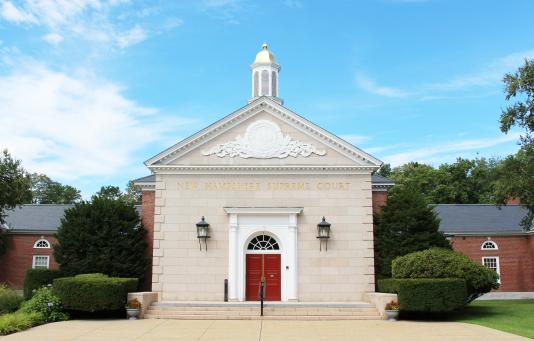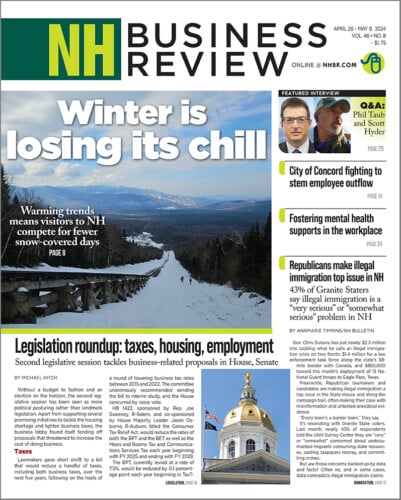SWEPT funding gets mixed reception in House, offered as amendment to HB1583
Plan would raise SWEPT rate and increase its share of state education aid from $363m to $773m
A proposal to address the orders by Judge David Ruoff of Rockingham County holding both state funding for public schools and administration of the statewide property tax (SWEPT) unconstitutional met with a mixed reception before the House Finance Committee yesterday.
Representative Tracy Emerick (R-Hampton), who chairs Division II of the Finance Committee, offered the plan as an amendment to HB 1583, which carried the House in February.
In November, Ruoff ruled the current base adequacy amount of $4,100 per pupil “constitutionally insufficient,” recommending the figure should be at least $7,356.01, which he described as “conservative.” At the same time, he held that entitling municipalities, where the SWEPT raised more revenue than needed to defray the cost of an adequate education, to retain the excess, spared taxpayers the full rate of the tax in violation of the constitutional requirement that state taxes be uniform in rate across the state.
Emerick’s plan would raise the rate of the SWEPT and increase its share of state education aid from $363 million to $773 million. “It’s redefining local property taxes as SWEPT,” he said, adding that the SWEPT rate would go up and the local rate would go down in equal measure. His amendment would also address the flaw in the administration of SWEPT. According to the Legislative Budget Assistant, under current law 48 municipalities would retain $29 million in excess SWEPT.
The amendment, by raising the rate of SWEPT, would increase the number of municipalities with excess SWEPT from 48 to 53 and require them to remit $88.4 million to the state. Hampton, the town Emerick has represented for five terms, stands to forgo $3.1 million.
The funds would be deposited in the Education Trust Fund for distribution to school districts across the state and the SWEPT would conform to the constitution. To ensure the funds are remitted to the state the amendment would authorize the state treasurer to withhold the share of Meals and Rooms Tax distribution from delinquent municipalities.
Emerick said his proposal would provide sufficient funding to meet the base adequacy cost figure of $7,356.01 per pupil recommended by the court while curing the constitutional deficiency in the administration of the SWEPT.
On the other hand, the amendment would limit increases in school district spending. Until June 30, 2027, school district appropriations, excluding expenses to acquire or construct facilities, could not exceed those of the prior year by more than the average Consumer Price Index of the prior three years.
And beginning in June 2027, school district appropriations could not be more than the greater of either the three average percentage change in enrollment applied to the prior year’s appropriation, excluding facilities and construction, or the three-year average appropriation. A two-thirds majority by roll vote of the legislative body of the school district would be required to assess property taxes to fund appropriations in excess of the prescribed limit.
The stiffest opposition to the proposal came from representatives of towns that have retained excess SWEPT since 2011. Mark Decoteau, the town manager of Waterville Valley representing the 26 members of the Coalition Communities, said “this exacerbates an unfair funding system” — the so-called “donor-receiver” model — which his organization has resisted since the SWEPT was introduced two decades ago. He said that revenue raised from the taxpayers of some towns is transferred to others without any accountability for how it is spent and is contrary to the practices and traditions that have governed the state for 200 years.
Decoteau was echoed by Representative Glen Cordelli (R-Tuftonboro), whose district includes a cooperative school district consisting of six towns, two of which — Tuftonboro and Wolfeboro — would stand to remit $8.8 million between them. He said 30% of excess funds must be remitted in February when town budgets are in place and asked, “What will be the process? This is a great concern.”
“Donor towns have no accountability mechanism,” said Representative Jess Edwards (R-Auburn), “you can’t really trust their spending decisions.”
Jason Sorens of Amherst, founder of the Free State Project, told the committee there was sound academic research indicating that transferring funding from affluent communities with high property values, household incomes and excellent schools to others with low property values, household incomes and struggling schools shifts is counter productive. By shuttling resources from communities where they are more productive to those where they are less productive, he said, “It gives towns an incentive to be inefficient and penalizes towns with an appetite for education.”
Thomas Enright of the Hollis School Board and Budget Committee spoke against limiting the growth of school budgets. “This substitutes your judgment for local judgment and takes away local control.” He explained that Hollis found itself struggling to retain and recruit teachers in the wake of the pandemic and would have been unable to reach a suitable teachers’ contract if a spending cap were in place.
Doug Hall, a director of the NH School Funding Fairness Project, described the increase funding and reform of the SWEPT as “big pluses,” but said that capping school budgets “will lock in the disparities that already exist.” Moreover, he noted that special education costs, which are seldom foreseen and difficult to project, can easily disrupt the tightest budget. In his town, Chichester, he said special education costs exceed all others. Likewise, he explained that the exclusion of capital projects overlooks the fact that these projects are commonly financed by the sale of bonds, which carry principal and interest payments for years after they are completed. “If you remove the spending cap, okay, otherwise no,” he said.
The Finance Committee will hold a work session on Emerick’s proposal this morning.
If the plan carries the House, it is sure to find tough sledding in the Senate. Senator Jeb Bradley (R-Wolfeboro), the president of the Senate, has repeatedly vowed to resist any return to the what he calls the donor-receiver town model of funding public schools.
